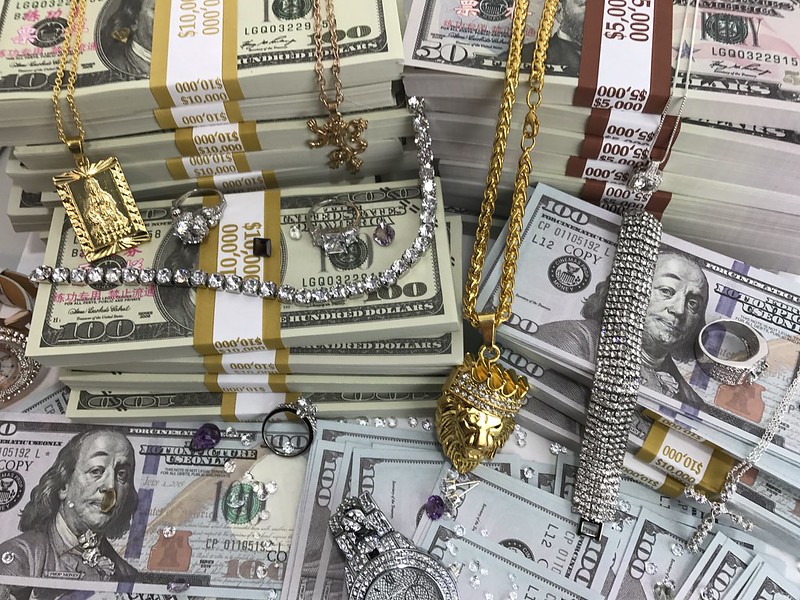There Is No “Wall Of Money”

Photo Credit: Crypto360 aka Cryprocurrency360.com [sic] || When will this stupid concept die?
Recently as I was reading Barron’s online, I ran across the following article: Small-Cap Stocks Could Keep on Rising. There’s a ‘Wall of Cash.’
I’ve subscribed to Barron’s for at least 20 years of my life. Really, I expect better of them. The meme that money flows in and out of the market is hard to kill. Stocks rise; money must have flowed in. Stocks fall; money must have flowed out. Some of this comes from the impulse that journalists must find a reason for the market action of each day, when really — there’s a lot of noise.
I have a few simple ways to explain this. Imagine that market player A wants to buy 100 shares of XYZ Corp at $50/share, and market player B wants to sell 100 shares of XYZ Corp at $50/share. Bam! Shares flow from B to A, and money flows from A to B. Total shares are the same. Total money in brokerage accounts is the same. The total amount of money is unaffected by trading.
Now, there are commissions. At least, intelligent people pay commissions. When I was a corporate bond manager, if my broker said, “I’ll just cross them to you to get the deal done,” I would say, “No, I will give you a plus. (1/64th of a dollar per $100 of principal) My broker must always be paid.” Why did I do this? It kept the relationships neat. When brokers don’t get paid, they look for hidden ways to earn their money. I much prefer my costs be explicit and fixed. (And, as a corporate bond manager, I valued loyalty. I had good relationships with my brokers.)
But by and large, trading does not affect aggregate cash levels. What does affect aggregate cash levels?
Increases Cash
- Dividends
- Mergers and acquisitions where cash is paid, whether partly or in full.
- Stock buybacks
Decreases Cash
- Primary and secondary public offerings of stock.
- Conversion of convertible securities.
- Rights offerings
And, there are probably more than what I have listed here, but the key condition for aggregate cash levels to change is that money must flow into or out of corporations, and shares must flow the opposite way.
But none of these changes happen through trading. They happen as a result of corporate actions.
Then Why Do Stock Prices Change?
Stock prices change because of two reasons, one minor, one major. The minor one: as trading goes on, either buyers or sellers are more desperate to get the trade done. Whichever side is more desperate pushes the price.
The major one: when markets are closed, people change their minds. Data builds up, and before any significant amount of trading happens, prices shift to reflect changed estimates of what the securities in question are worth.
To prove this, I will tell you that intraday trading is noise, and little return happens there. But while the market is closed — that is when returns happen. The difference between the prior close and the next market open explain all of the returns of the market over the last 20+ years. The difference between the current days open and close are close to zero.
Most of the reason why stock prices change is that people as a group change their minds as to the value of stocks. Trading has a modest impact on that. But most of the change in value happens while the market is closed. (Remember that corporations mostly break news while the market is closed.)
If you understand this, you get the following benefits:
- You will ignore most media explanations of moves in the stock market
- The primary market will guide you — looking at M&A and IPOs.
- You will ignore the so-called “wall of money” which does not exist.
- Instead, you might notice how much of the total assets in aggregate portfolios are in stocks versus everything else.
Prices matter. Buy low, sell high. But don’t attribute anything to the “wall of money.” It is a bogus concept and should be ignored. The biggest changes in prices happen when the market is closed, and trading is limited.
Disclaimer: David Merkel is an investment professional, and like every investment professional, he makes mistakes. David encourages you to do your own independent "due diligence" on ...
more


